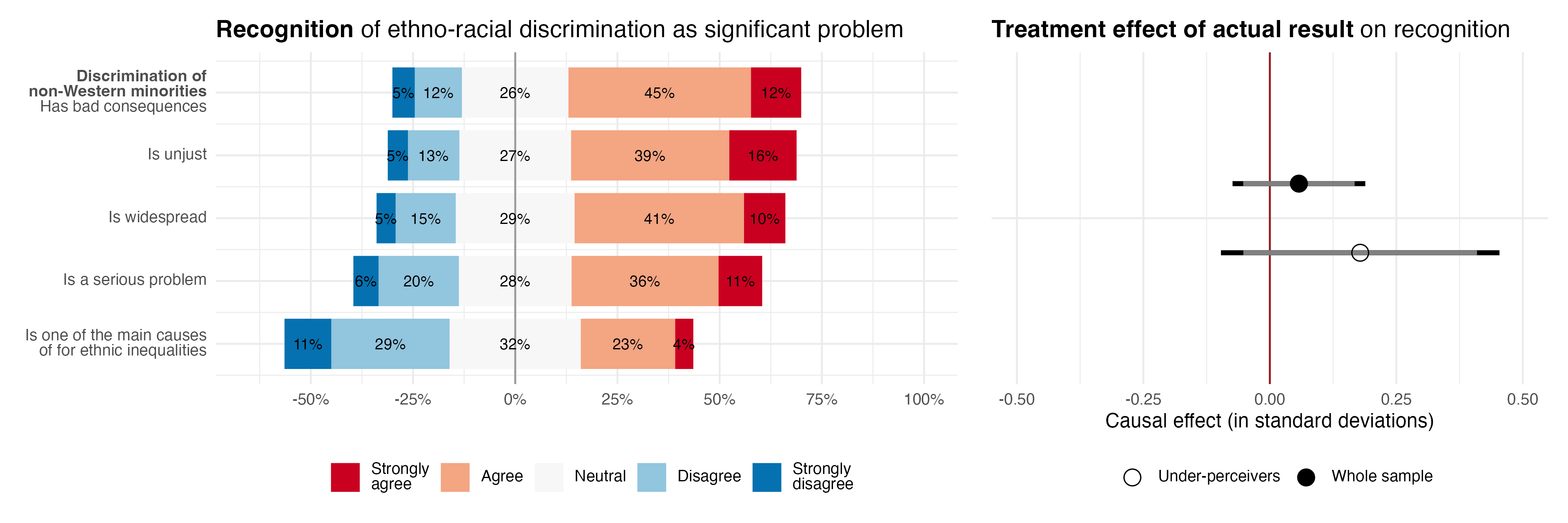Click here to see the slides for the presentation at JEMS annual conference, CEPDISC’23 Conference on Discrimination, ACES 2023, Madrid, Conference on Pluralistic Societies, Copenhagen, Sciences Po, Paris, Vive, Copenhagen, Max-Weber-Institute of Sociology, Heidelberg Univeristy, or the WIM Research Event

Abstract: The disadvantages experienced by minorities and the lack of societal remedies for them are widely believed to be partly attributable to mainstream-majority citizens’ limited awareness of the hardships encountered by minorities. This study investigates whether informing citizens about field experiments on ethno-racial discrimination increases their recognition of the issue and support for equal-treatment policies. Based on the assumption that citizens require assistance to comprehend the significance of field-experimental evidence, the study tests three types of framing: a scientist framing the evidence as credible, a lawyer emphasizing the legal breach, or a minority expressing personal grief. The results indicate that citizens are generally aware of discrimination against ethno-racial minorities and even tend to overperceive its extent. Furthermore, communicating field-experimental results corrects and converges misperceptions but does not change recognition of the problem or support for equal-treatment policies, regardless of the framing or initial misperception. Only combining priming, correction, and framing temporarily increases recognition and donations to minority support groups, but not support for equal-treatment policies. These findings suggest evidence-based awareness campaigns have limited immediate success in promoting policy support. Citizens may donate to acknowledge minority hardships but hesitate to endorse policies that could affect their group’s privileged position.